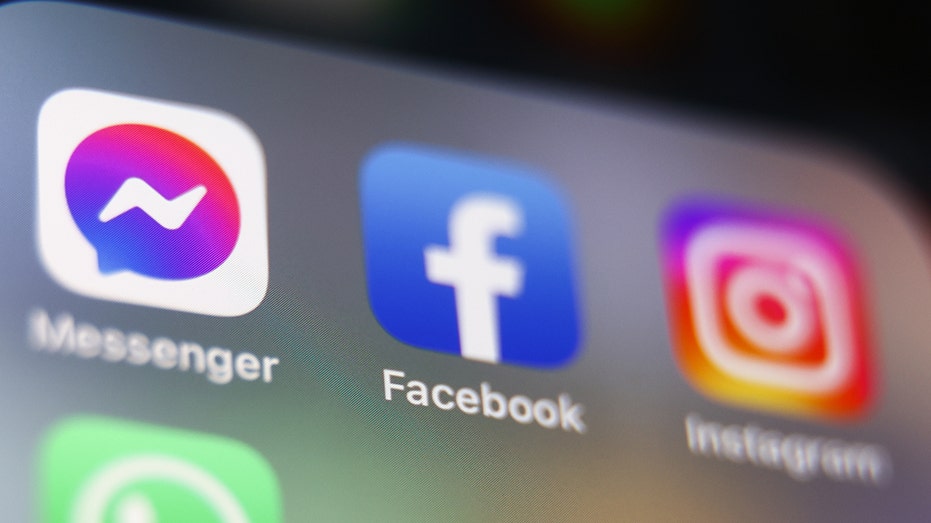Social media driving surge in life insurance applications among Gen Z and Millennials
Over 100M Americans believe they are underinsured
Applications for life insurance policies have shot up among consumers amid an era of economic uncertainty.
What is notable, though, is that the proliferation of financial education on social media is a big driver behind this increase.
Scores of Gen Z and Millennials are turning to social media channels from YouTube and TikTok to get a better understanding of financial products, which includes life insurance, according to Bryan Simms, co-founder and president of Mammoth Life and Reinsurance Company.
Applications increased 6.5% in December, reflecting the second-highest year-over-year growth rate on record for that month, according to data from MIB Group, a membership corporation owned by approximately 430 member insurance companies, published last month.
JANUARY IS AN IDEAL TIME TO REVIEW YOUR INSURANCE POLICIES
Additionally, the year to date growth rate in 2023 "was largely driven by younger age groups" at or under 50 years old, MIB noted.
Given the rise in social media and its influence on daily life, there is a whole new "generation of Americans, 18 to 42, who rely not exclusively but primarily on those social media outlets as a means to get themselves educated about what's available to them," Simms said.
He noted that these outlets have "made previously misunderstood financial services product easier to understand and more approachable."

A finger pointing to the TikTok mobile app displayed on a smartphone screen alongside that of X, Whatsapp, Facebook, Messenger, Threads and Telegram on Aug. 15, 2023, in Brussels. (Jonathan Raa/NurPhoto via Getty Images / Getty Images)
Financial service professionals are even turning to these channels to reach a broader audience than their current clientele.
"That broader audience has a greater proclivity for the use of social media outlets as education funnels than they have ever in the past," Simms said.
Previously, there had been many misconceptions that life insurance was too expensive. If cost was not a concern, people did not know where to go to learn about it.
According to a recent report from insurance trade group LIMRA, life insurance has been declining over the past decade. Just over half of U.S. adults report having life insurance today, which is down from 63% in 2011.
Additionally, another large portion of Americans, more than 100 million, believe they do not have enough coverage, according to a 2023 Insurance Barometer Study, conducted jointly by LIMRA and Life Happens.
However, in recent years, there has been a shift in mentality by younger generations. For one, the coronavirus pandemic forced people "to face mortality concerns and legacy concerns much earlier than prior generations."
PROPERTY INSURANCE RATES KEEP CLIMBING, WORSENING AFFORDABILITY CRISIS
They were faced with the very real possibility of death due to unforeseen circumstances. However, it was also a time when a lot of people lost their jobs, and consequently, their company benefits.

Messenger, Facebook, Instagram and WhatsApp displayed on a phone screen are seen in this illustration photo taken in Krakow, Poland on Aug. 6, 2023. (Jakub Porzycki/NurPhoto via Getty Images / Getty Images)
"If you were working a job pre-COVID and your employer provided benefits for you, that included some modicum of life insurance product and your job went away, those benefits went away," Simms said. "If you had an experience where someone in your family or in your circle of influence, passed only as a result of [a] COVID illness, now your mental state is shifting too."
GET FOX BUSINESS ON THE GO BY CLICKING HERE
Simms sees social media as a key engagement tool for drumming up continued interest in life insurance policies which can provide consumers with an opportunity to "build cash value, which can help aid future investments."
"We are seeing a growing demand by consumers who want to secure life insurance in order to help prepare for an uncertain economic future," Simms added.
However, there are many nuances to coverage that Simms argued are vital for consumers to understand.
For instance, while most large companies offer supplemental insurance as part of their benefits package, Simms warned that "it's never going to be enough."
It underpinned another misconception. Depending on what a person needs, Simms recommends consumers look into additional coverage.





















